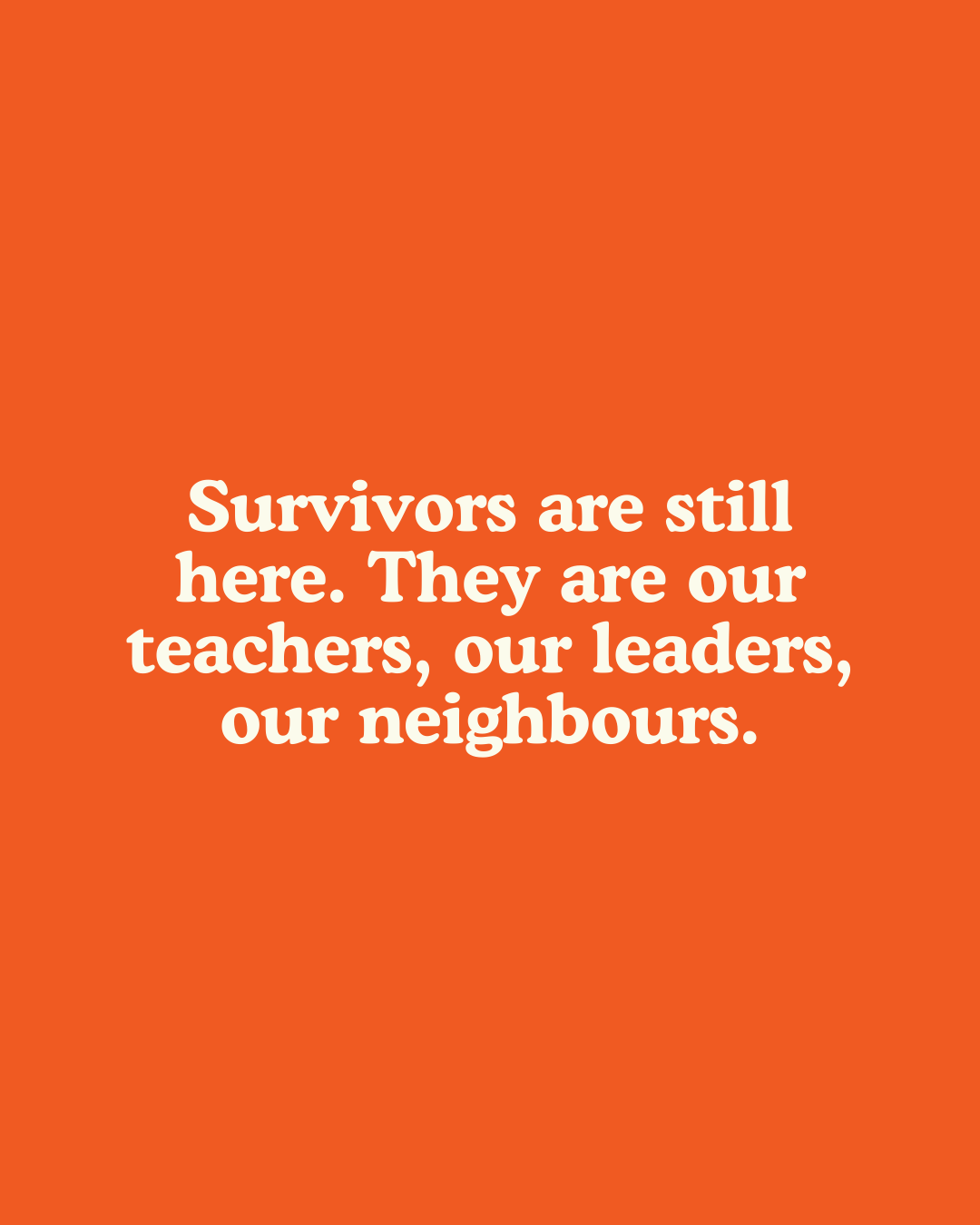
CMHA Champlain East observes National Day for Truth and Reconciliation
On September 30, CMHA Champlain East stands in solidarity with Indigenous communities to observe the National Day for Truth and Reconciliation.
This day honours the strength and resilience of residential school survivors, their families and their communities.
While it is vital to acknowledge the harms of Canada’s history, it is equally important to recognize and celebrate the remarkable achievements of Indigenous peoples in mental health, academia, the arts and advocacy. Indigenous communities are leading the way in creating vibrant, empowered futures. CMHA Champlain East is committed to supporting these efforts and learning from Indigenous leadership.
Action, not just words
Acknowledging past harms is not enough. We must act.
The Truth and Reconciliation Commission’s Calls to Action provide a clear path forward. The health care system, including mental health services, must listen to and support Indigenous communities. This means centering Indigenous world views, knowledge, and ways of being, while also amplifying Indigenous voices and investing in Indigenous-led solutions.
A commitment to co-creating mental health services with indigenous communities
CMHA branches are committed to fostering reciprocity and sustaining meaningful relationships with Indigenous leaders and organizations to strengthen mental health supports. Together, we are committed to:
- Supporting Indigenous-led mental health initiatives that honour traditional healing practices and ways of being.
- Building meaningful partnerships with Indigenous communities to co-create mental health programs.
- Ensuring cultural awareness training for staff so services respect and respond to the unique needs of Indigenous peoples.
- Promoting self-determination by valuing Indigenous approaches to mental health and well-being.
Take action and learn more
This September 30, CMHA branches encourages everyone to take time to reflect, learn, and support Indigenous-led initiatives.
As counsellor Kim Sedore writes, “I can’t undo what has been done. I can work to undo what continues to be done. I value, respect and advocate for many ways of being, knowing and doing. I commit to increasing the integrity of my accountability structures… to find and take up my place in this healing journey with respect, love and honesty.”
Reconciliation is ongoing work. It asks us to listen and to act in ways that strengthen relationships with Indigenous communities. Together, we can build a future rooted in equity and respect.
For a list of Truth and Reconciliation events open to the public, visit the National Centre for Truth and Reconciliation.

